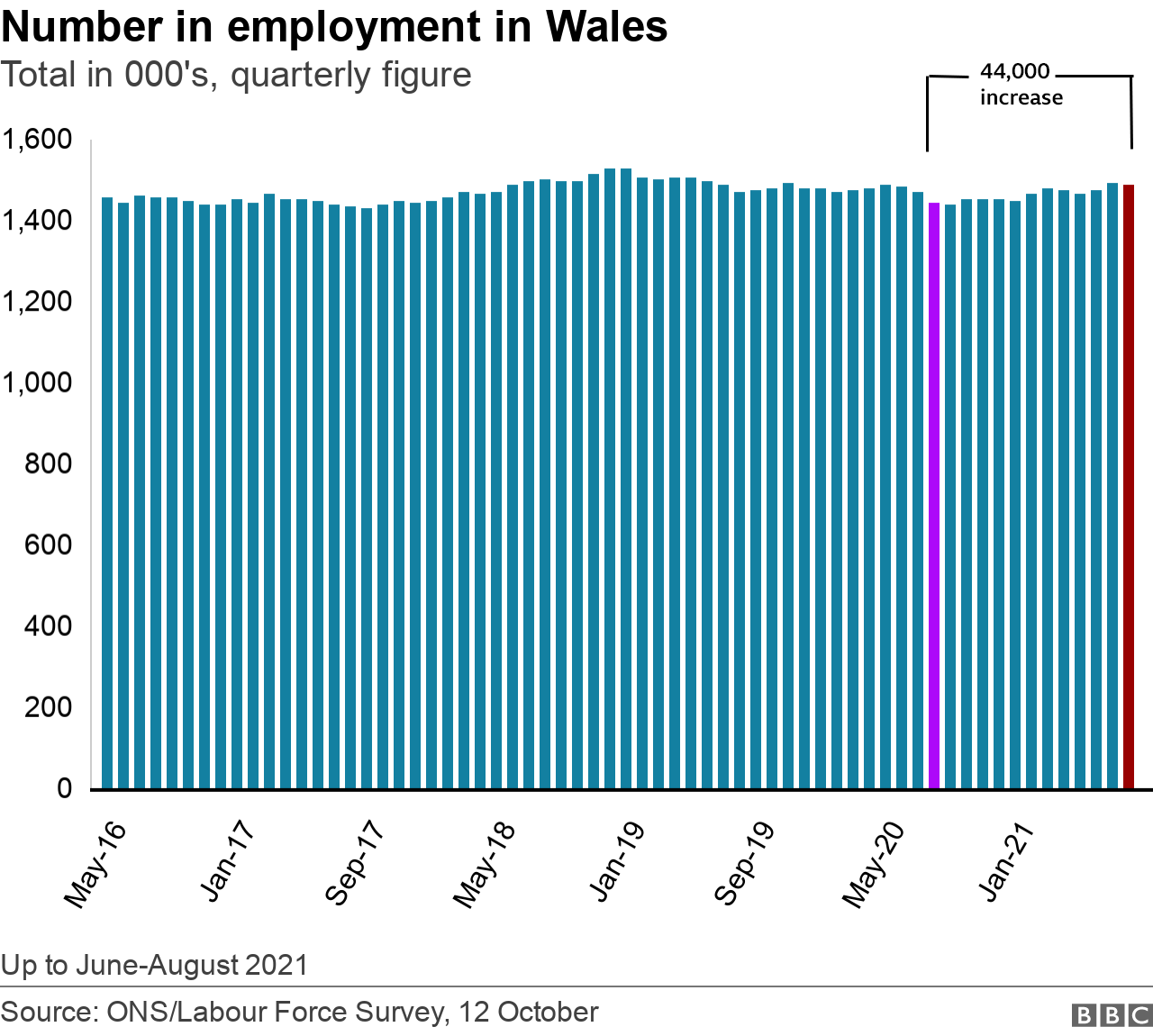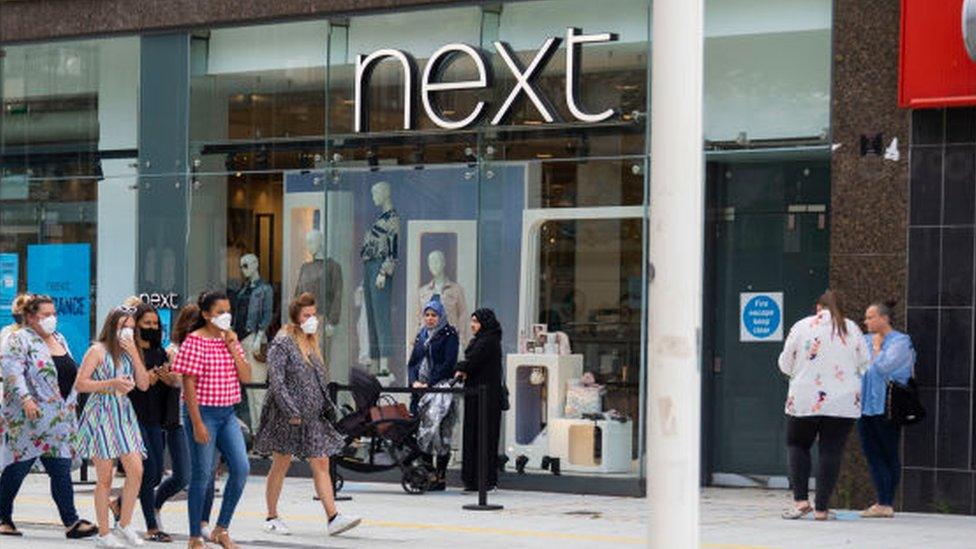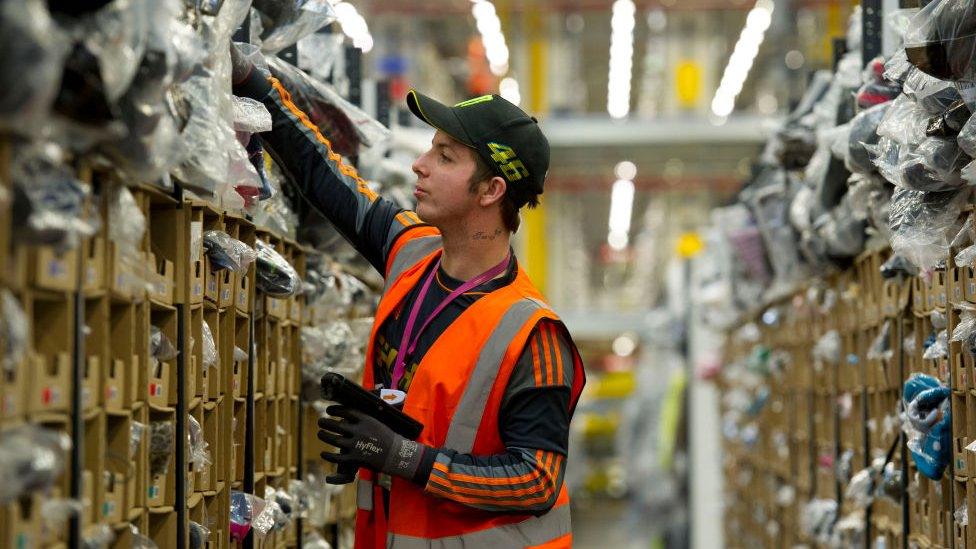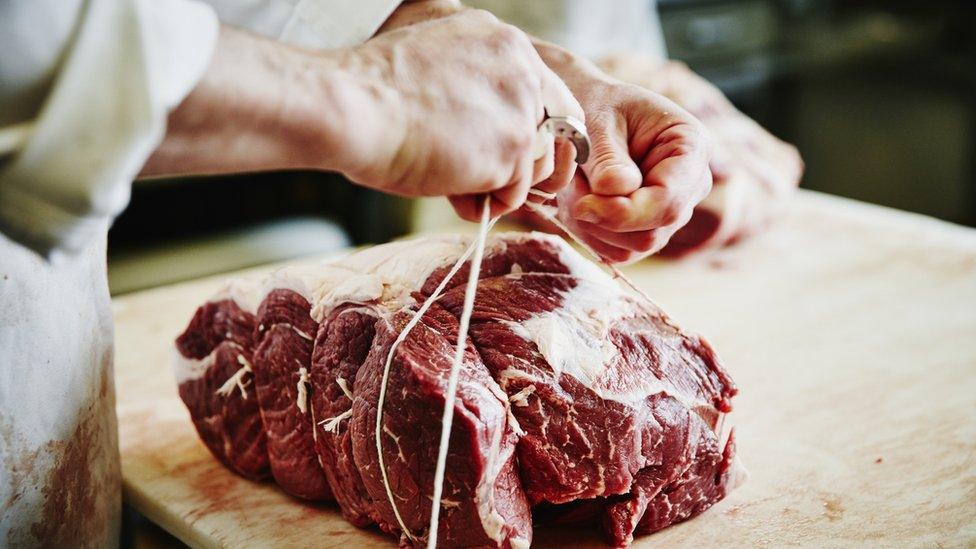Covid: 'Crazy' period for recruitment puts workers on top
- Published
- comments

Sectors including finance, tech and driving have suffered staff shortages alongside hospitality
A shortage of skilled workers has created a "crazy period" for the Welsh jobs market, a leading recruitment firm has said.
Cardiff-based Yolk Recruitment said candidates were in a "position of control and power".
The firm said clients' job vacancies had increased by 35% compared to pre-pandemic levels.
Official figures show numbers in work in Wales rose by 25,000 in the three months to August.
There were also 44,000 more people in employment compared to the same quarter last year, Office for National Statistics (ONS) figures showed.
Despite this, unemployment in the three months to August increased by 0.2% to 4% overall - below the UK average of 4.5%.
Researchers suggest that the shortage of skilled workers will remain a challenge for the next five years.
Retraining as an HGV lorry driver
Steven Lloyd, 47, from Gilfach, near Bridgend recently retrained as an HGV driver.
"The passion was always HGV and lorries, but unfortunately - with the cost - I was never able to afford the outlay for the training," said Steven.
He previously drove buses, but after being made redundant during the pandemic, retrained for his dream job.

After losing his job during the pandemic, Steven Lloyd is retraining for his dream job
The cost, which can run into thousands of pounds, has been covered by Remploy, which Steven was referred to by his Job Centre in Porth, Rhondda Cynon Taf.
"It has made my dream come true really, it is just wonderful," he said.
"With lorries, you are delivering goods, you're in the cab on your own - with the radio on, you can sing along. But it is also just being part of a team, especially with the shortage [of drivers]. You are contributing something really valuable at the moment."
Chief operating officer of John Raymond Transport, Geraint Davies, said the Bridgend-based company had turned to organisations such as Remploy after struggling to recruit drivers through the usual channels.
The company has had to increase wages to attract workers and while it has 140 drivers, could easily employ another 15 or 20 if they were available, he said.

Pavan Arora of Yolk Recruitment says 35% more jobs are 'available and open'
"It is a crazy period that we have seen, especially since the start of the summer," said Pavan Arora, chief commercial officer for Yolk Recruitment in Cardiff.
His own team of recruiters has expanded to deal with the boom in vacancies.
The recruitment office has a gong which staff will strike when job deals are completed. It is being struck a lot these days.
"Right now, as a business, we have seen an increase of around 35% in demand compared to pre-pandemic levels. So that's 35% more jobs available and open," he said.

There have been well-publicised shortages among lorry drivers, but sectors including technology companies and financial services firms are also having difficulty finding staff.
Hospitality continues to struggle too, with wages increasing and some pubs and restaurants closing temporarily because of a lack of staff.
Mr Arora recalled thousands of applicants were chasing a few jobs as the pandemic took hold last year, but the reopening of society has flipped the jobs market. It means some job candidates have a choice of roles, and can demand increased salaries or more flexible working patterns.
'Feeling the pinch'
"It is your pickings, it is your time, the position of control and power is in your court slightly," Mr Arora said.
"What you have to be aware of is that there are a lot of counter offers. So there are a lot of employers that are trying to retain staff as they look to leave a business.
"That is a challenge for new employers, but also candidates have to be aware that maybe they can get more from their current employer before going to the employment market, because everyone is feeling the pinch of how crazy the current jobs market is."

Rhys Griffiths from the Open University said skills shortages predated Covid
The shortage of skilled labour, even for entry level roles, is preoccupying businesses. Research by the Open University found the majority of Welsh companies it surveyed had suffered as a result of the shortage of workers.
"Employers are facing skills shortages, they are finding it challenging to recruit people into their businesses," said Rhys Griffiths, the business relationship manager for the Open University.
"Covid is having an impact on some of the decisions and challenges that they are facing," he added.
"But we have been tracking the skills shortage. What is apparent is that the skills shortages have been there for a number of years and will continue."
'In the deep end'
Universities and colleges are working with businesses to offer apprenticeships or tailored training, but the Open University's research found that firms expect staffing issues to continue for the next five years.
Hospitality businesses are already attempting to work with training providers to address the shortage.
Hospitality businesses are already attempting to work with training providers to address the shortage.
The north Wales restaurant group Dylan's is launching an academy, and will work with schools and colleges to recruit and train staff by providing a qualification and a guaranteed job.
The restaurant's head of marketing, David Retallick, said it was the company's response to the crisis in recruitment across the hospitality sector.
"It is an opportunity for us to offer working experience alongside the apprenticeship programmes that already exist.
"This is our own Dylan's spin on how we bring up and develop young people in the industry - allowing people to break in slowly, rather than giving them a shock-horror treatment where they go to their first job and they suddenly realise that they are really in the deep end."
Mr Retallick said the trainees would have working patterns that aimed to shed the image of antisocial hours and low pay that had traditionally been attached to hospitality jobs.
He said: "We are limiting hours, we are not putting people on weekend work or on double shifts, and we are paying above the minimum wage for 16 to 21 year olds. We are just making sure it as well-facilitated by the business as possible."
- Published6 October 2021

- Published20 September 2021

- Published29 September 2021

- Published1 September 2021

- Published23 August 2021
